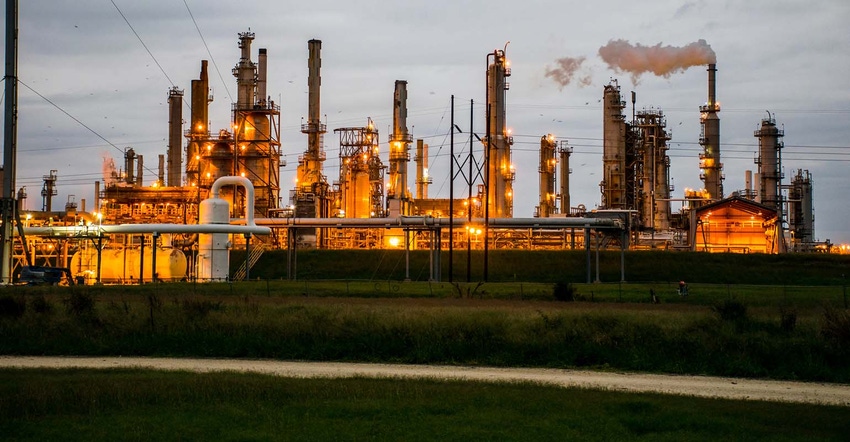
By Jennifer A. Dlouhy
Trump administration officials are developing a plan to offset the potential economic damage of denying dozens of refineries waivers from biofuel-usage mandates: giving them financial aid.
The approach is actively being discussed by top Environmental Protection Agency officials as the administration courts two important voting blocs for President Donald Trump: blue-collar oil industry workers, and agricultural interests in the Corn Belt. The talks were described by three people familiar with the matter who asked not to be named discussing the administration’s private deliberations.
It’s unclear what statutory authority -- or even financial account -- the EPA might tap for the aid, though agency officials are considering coronavirus-relief funding allotted to the Agriculture Department, the people said. Under that approach, aid would be distributed to small refineries denied waivers from biofuel quotas.
Representatives of the EPA didn’t immediately respond to a request for comment.
The approach poses both political and legal challenges. It could do more to inflame angst among biofuel interests in the battleground states of Iowa, Minnesota and Wisconsin than it would do to assuage oil refining workers in Texas and Pennsylvania, which are also key to a Trump electoral victory. Renewable fuel advocates were incensed earlier this year when the Agriculture Department bypassed ethanol and biodiesel producers when doling out coronavirus stimulus aid.
Oil industry supporters also have warned the administration that cash payments to small refineries that normally qualify for waivers would do nothing to help larger facilities that typically benefit indirectly from the exemption program, in the form of lower overall compliance costs.
EPA talks on the possible strategy began in earnest after Tuesday, when the agency was directed to dispense with dozens of pending applications from refineries seeking exemptions from annual biofuel-blending quotas dating back to 2011.
The retroactive waivers have no clear immediate economic value but are essential for the refineries to obtain valuable biofuel-blending exemptions in the future because a federal court ruled in January that facilities need to have continually obtained the relief in order to keep getting it.
© 2020 Bloomberg L.P.
Read more about:
EthanolAbout the Author(s)
You May Also Like




